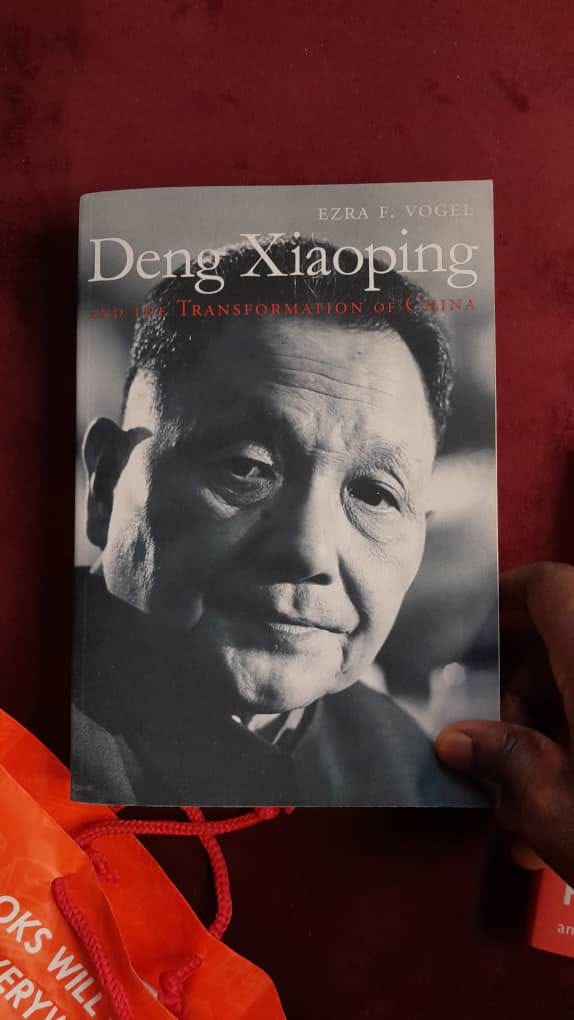Book Review: Deng Xiaoping and The Transformation of China
This book was expensive and a heavy read. It was worth it.
I finished this book today. Whew! What a book. What a guy!
This is Deng Xiaoping in all his strengths and weaknesses. There is no question Deng was a great leader. China was blessed to have him at that exact point.
Chairman Mao had destroyed everything, and his successors were willing to continue the destruction. Three times, Deng was rusticated and sidelined from power. Three times he bounced back. Throughout those times, he was learning and deciding what China needed to succeed. When he returned in 1978, it was just to implement.
Reading this book made me appreciate the difficulty of developing a poor country. It was Deng's vision that set China on the path to the wealth that it has today. Deng knew when to be tough and when to push reforms aggressively. He called it "reform and opening." It was a heavy dose of capitalism. Opening up borders, opening up the economy, and supporting the initiatives of individuals and villages. For Deng, ideology was nonsense; what mattered was what worked. Whatever worked, Deng would pursue it with all his being. There was no standing on the fence for Deng.
China grew. China prospered.
During his lifetime, he kept reminding his compatriots and those he sought help from that China was poor and backward, and the only way to get respect was to get rich. To get rich, it must invest in its people, it must invest in science and technology, and it must allow some freedoms. That's a summary of all he did.
Within the context of his generation, Deng stands apart for being a leader who avoided vendetta. The past was the past. He chose leaders based on those who could do the job. Deng repeatedly said he didn't care if the cat was black or white, so far as it catches mice, let the cat be given the job.
I was surprised to find the World Bank's participation level in China's development. This is not mentioned often because it doesn't fit into the ideological battles that intellectuals in developing countries like to portray. Moreso, the incredible support that Western countries offered China is nearly unbelievable.
Just to mention one. President Bush wrote a personal letter to Deng on a sheet of paper with his pen without any other record (so it doesn't leak) just so they could maintain the China-US relationship after Deng ordered the shooting of innocent civilians at Tiananmen Square. The trips by Western economists such as Milton Friedman and economists from the world bank who taught Chinese economists contradict everything I was led to believe about Chinese development.
There is no such thing as "original development"; we are all going to copy from each other. Poor countries need to look at those coutnries that have developed and copy the "software of development". It works.
It is difficult to change how a nation thinks, especially it's elite. Chinese elites had trouble changing to a new way of thinking after years of Mao. Deng pushed them and made sure they did. A few times, development almost derailed because the elites were conservatives. Deng kept pushing. His toughness is incredible.
The biggest blot on his record remains the killing of civilians at Tiananmen Square. As I read these parts, I grew cold and felt angry again. He was an idiot for ordering this. While Ezra Vogel does an excellent job of giving the thinking of Deng during this time, it does not justify the use of the military on civilians who had no guns. There are a lot of lessons leaders can learn from Deng, but surely, this one is not one of them.
Every nation arrives at a crossroads. They are lucky when they reach that point and have leaders like Deng!
This book was expensive and a heavy read. It was worth it.
I would just like to repeat; there is no reason why Nigeria is not a developed country.


